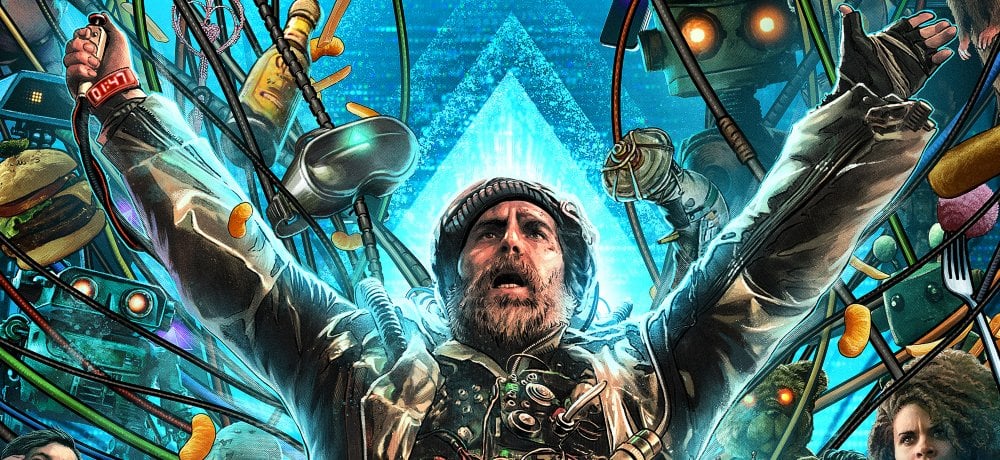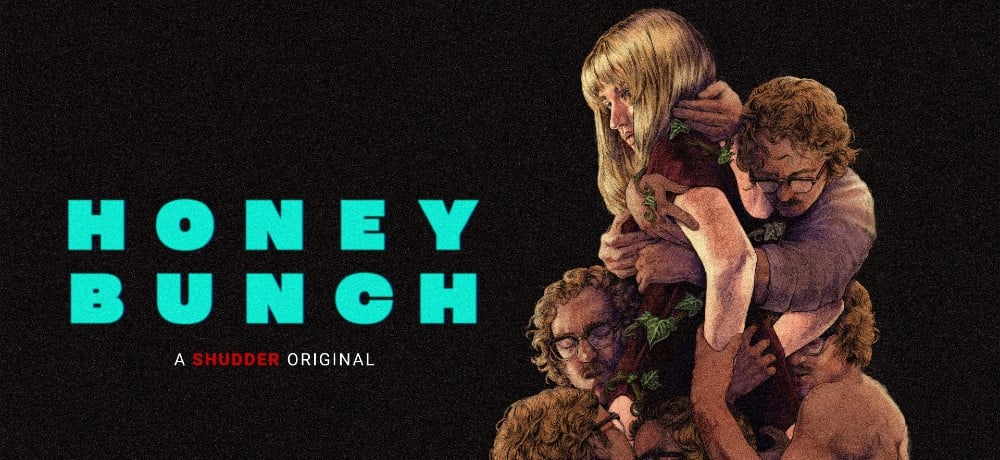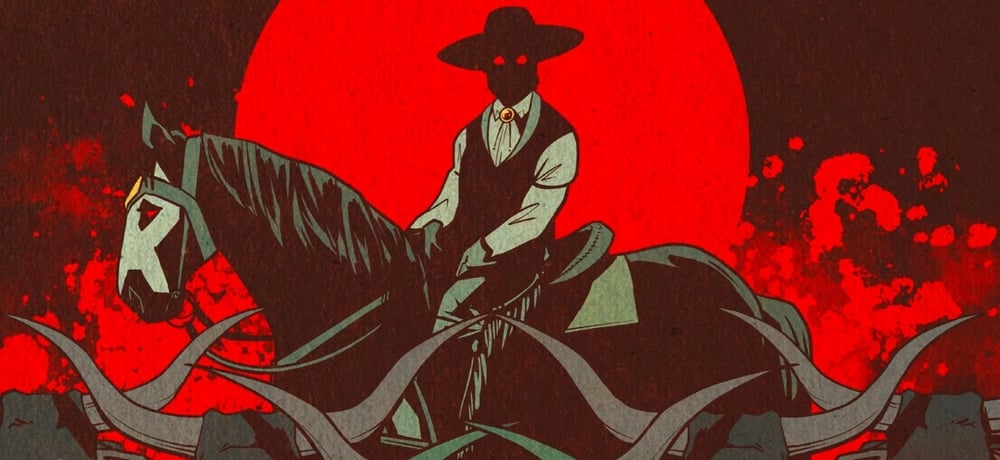





While Sundance’s genre offerings kept me plenty busy throughout this year’s festival, this writer still had the opportunity to check out a few films that don’t quite fall directly under the umbrella of horror, but I still thought they were definitely worth discussing and were of interest to our readers. Here’s a look at my thoughts on Jennifer Kent’s The Nightingale, Corporate Animals from Patrick Brice, and Mope, which was helmed by first-time feature director Lucas Heyne.
The Nightingale: With her work on The Babadook, Jennifer Kent quickly established herself as one of the most intriguing filmmakers out there, and so many fans have been patiently waiting to see what she’d do next as a director. Her follow-up, The Nightingale, isn’t technically a horror movie per say, but it is what I like to call “genre adjacent,” as it’s just as bleakly horrific as anything I’ve seen in many straight-up horror movies as of late. Brimming with a fiery ferocity, and anchored by an unforgettably raw performance from Aisling Franciosi, The Nightingale is without a doubt a rough film to get through, and it almost feels like Kent is purposefully punishing viewers, but I think that ultimately that’s the point, especially when you take into consideration the material and its intent.
The Nightingale transports us to Tasmania in 1625, where the British Empire has taken over, and not for the better. In an effort to keep the troops entertained, a young woman named Clare (Franciosi) is brought in to sing for the men, and her lovely vocal talents are directly connected with the film’s title. But Clare is far more than just eye candy for the soldiers, she’s also a former convict who has been granted her freedom under the control of Lieutenant Hawkins (Sam Claflin), who uses his power against her time and time again. One night, when Clare’s husband decides he has had enough of answering to these malignant forces, a horrific string of events occurs, leaving poor Clare destroyed, both physically and mentally. Hellbent on revenge, the embattled young woman sets out to right these wrongs, and enlists an Aboriginal guide named Billy (Baykali Ganambarr) to help on her arduous journey for retribution.
Clocking in at almost two and a half hours, The Nightingale is an endurance test for viewers; not that the film is bad by any means—quite the opposite, in fact, as Kent once again proves she’s a filmmaker who can tap into rage like no other—but there is a lot of punishment on display from start to finish, and afterwards, I felt like I had taken a bit of an emotional beatdown and was in desperate need of a hug (and maybe even a drink) to shake it all off. Kent isn’t interested in downplaying any of the real-life horrors of Clare’s world, and there’s a bluntness to the way the writer/director approaches the oppression of the film’s heroine. The interesting thing about Clare is the fact that she’s deeply flawed, and we see so much of that early on when she sets out with Billy, as she verbally mistreats him and her own racist tendencies come out as well. Like I said, there’s a whole lot of “ugly” going on in The Nightingale, but the fact that Clare comes full circle as a character and realizes how she needs to be better, too, was a touch I very much appreciated.
Movie Score: 3.5/5
---------
Corporate Animals: Patrick Brice taps into the awkwardness of workplace relationships to the nth degree in Corporate Animals, a pitch-black comedy about a group of employees forced to attend a team building retreat at the insistence of their overbearing boss, Lucy (Demi Moore), but things go terribly wrong during a cave diving excursion that leaves everybody trapped deep underground, and their hopes for rescue diminish with every passing day. A brutally savage satire that taps into the weirdness that comes from spending most of your time and having to “bond” with and trust people that, most likely, you would never spend time with otherwise, Corporate Animals is a pitch-perfect examination of the dynamism of workplace politics, and the ridiculousness that comes from being asked to blindly cater to every professional whim of those you work on behalf of and alongside as well.
As a fan of Patrick Brice’s work in the Creep series, I was very curious to see him venture out into more explicitly comedic territory for Corporate Animals (the aforementioned Creep movies do have some slyly hilarious undertones to them, but eventually, those jokes stop once the horror of the situation takes over), and he did not disappoint. And while the laughs and the humor might be a bit more “surface-y” at the beginning of the movie, the tone of writer Sam Bain’s script gets exceedingly more bitter and acerbic the worse things get for these characters, as we watch them unraveling right in front of our very eyes. There’s also a trippy psychedelic scene that feels like a nifty little detour in Corporate Animals, and if you ever wanted to see a gaping wound singing Britney Spears’ "Toxic," then Brice has you covered.
With Moore, it was just so much fun to see her get to be truly hilarious in Corporate Animals, as she gets to put her trademark razor-sharp delivery on full display. What’s great is that the rest of the cast are just as deeply funny as Demi, with Brice assembling some of the best comedic actors working today, including Deadpool’s Karan Soni (who is also in the upcoming show Miracle Workers, which also looks great), SNL alum Nasim Pedrad, Jessica Williams (who popped up in numerous skits on The Daily Show as well as The Incredible Jessica James), Ed Helms (The Office, The Hangover), Dan Bakkedahl (Veep, The Heat), and Calum Worthy (who was great in last year’s Bodied). Brice, who has been the master of one-locale storytelling for years now, proves once again that he knows precisely just how to revel in contained chaos here, resulting in Corporate Animals being one of the funniest subversive comedies that I’ve enjoyed in quite some time.
Movie Score: 4/5
---------
Mope: For his first time at the helm of a feature film, co-writer/director Lucas Heyne explores the circumstances around the real-life tragedy of two aspiring porn stars, Tom Dong (played by Kelly Sry) and Steve Driver (Nathan Stewart-Jarrett), who attempted to make it in the business back in 2010, but their aspirations are dashed once they realize that while they may be porn super fans, they’re not particularly great at performing in it. And instead of reveling in the salacious details of the world it is exploring, Mope tends to leave its judgments at the door, becoming something of a story about dreamers that goes horribly wrong, and that’s the aspect of the film that spoke to me the most.
The easiest comparison to make when it comes to Mope would be Boogie Nights, but it definitely is a far more humorous examination of the price of fame (or in this case, infamy) in the realm of pornography. Because Tom and Steve aren’t the most gifted actors trying to make a name for themselves, they end up employed at Ultima, a ragtag operation led by a frustrated label owner (played by Brian Huskey) who attempts to stand out in the crowded marketplace by trying to market videos involving highly painful kicks to the testicles and other oddball fetishes, but ends up being something of an industry punchline, much like Mope’s pair of protagonists.
The performances in Mope also made me invested in the journey of these characters, and despite the fact that I knew the direction where everything was headed because of the news coverage of the real-life events, the last 10 minutes still landed like a gut-punch, and so much of that came from the endearing performances from Sry and Stewart-Jarrett, who immediately feel like guys you know and understand even if you don’t share their dreams. Huskey is also pretty great in Mope, and he’s been overdue for a prominent role like this one for quite some time, and David Arquette also briefly appears in the film as a porn producer named Rocket, who is the shocking antithesis of the nice guy Arquette most of us know and love.
My real issue with Mope is that it feels like Heyne struggles a bit with the tone of the narrative at times, especially in the latter half of the film, and while I do appreciate that Mope goes the handheld route for its camera work (mimicking the style of the porn industry), it gets to be a little too much during the movie’s more harried moments. Overall, though, Heyne should be proud of his efforts on Mope, as he demonstrates great promise as a director who can find the heart within the most challenging of scenarios.
Movie Score: 3/5
---------
Want to read other reviews, interviews, and news from Sundance? Check here to read all of Daily Dead's live coverage of the 2019 Sundance Film Festival!
[Photo credits: First photo is from Kasia Ladczuk and third photo is from Kern Saxton, courtesy of the Sundance Institute.]